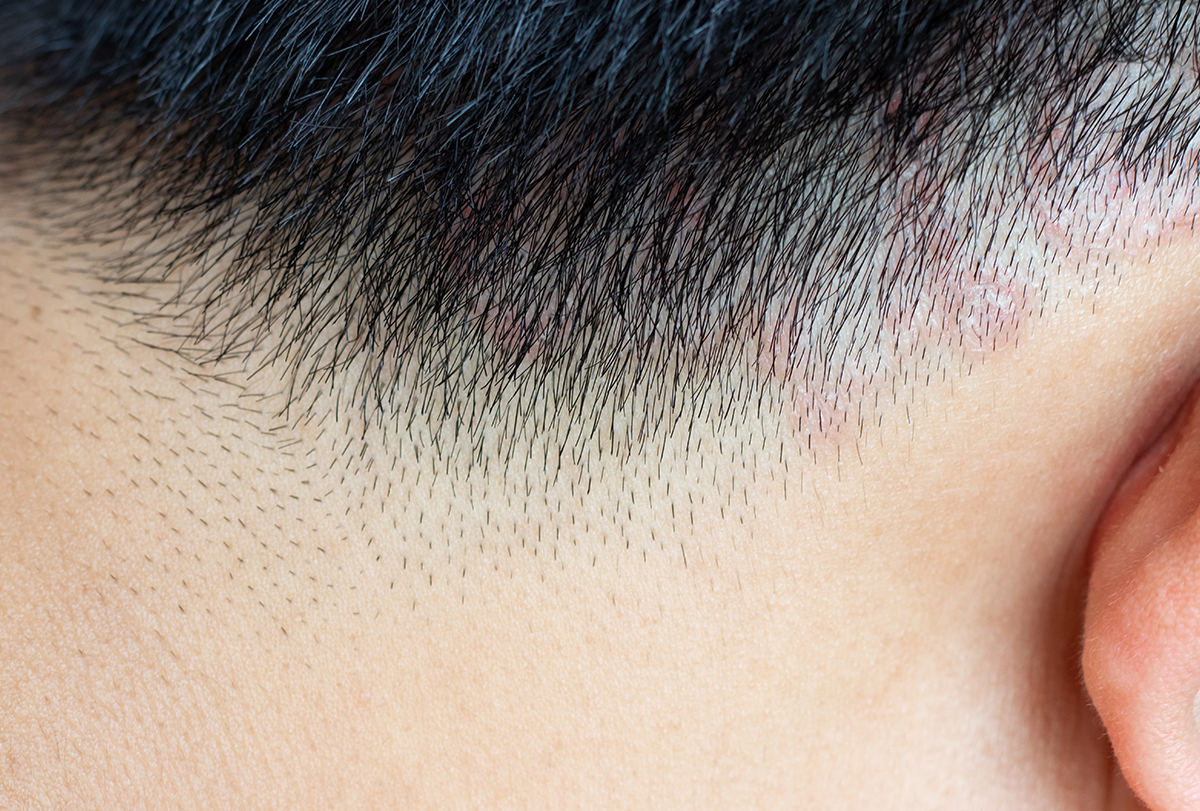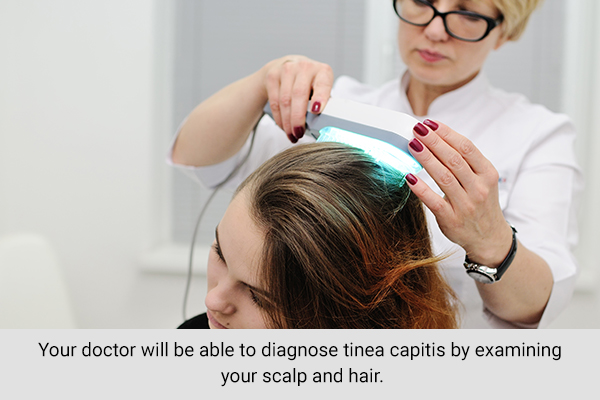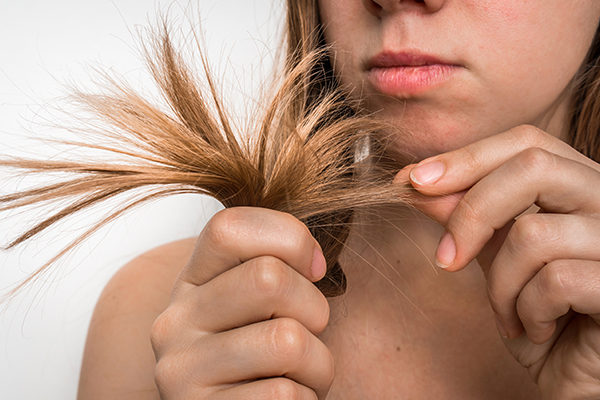In this article:
Scalp ringworm, or tinea capitis, is a fungal infection of the scalp. It can cause itching, irritation, and circular raised patches on the skin. (1)

Contrary to the name, there are no worms involved in this disease. Ringworm is caused by fungi such as Trichophyton tonsurans and Candida albicans. It can occur anywhere on the body – from the feet, thighs, and underarms to the scalp. (2)
Causes of Ringworm on Scalp
The most common causative agent for scalp ringworm is Trichophyton tonsurans. It is a contagious disease. This fungus can spread from one person to another via direct or indirect contact. (3)
- Direct contact from infected people or animals to healthy individuals occurs via fungal spores.
- Indirect contact is the transmission of the infection via hairbrushes, combs, towels, etc.
Symptoms of Scalp Ringworm
Scalp ringworm is commonly seen in children and can cause the following symptoms:
- Hair loss
- Itching and irritation
- Dry, flaky scalp
- Rash on the scalp or skin around it
- Kerion
- Agminate folliculitis
As you can probably tell, these symptoms are very generic and can occur in a number of scalp conditions such as dermatitis, psoriasis, and alopecia areata. Hence, it is necessary to get yourself properly evaluated by a doctor for a correct diagnosis. (4)(5)
Treatment for Ringworm of the Scalp
Ringworm of the scalp may require you to take antifungal tablets. The most commonly prescribed medicines for ringworm are:
- Fluconazole
- Itraconazole
- Terbinafine
- Griseofulvin (6)
Your doctor may also ask you to use an antifungal shampoo such as a ketoconazole shampoo or a selenium sulfide shampoo for a while. (3)
Diagnosing Scalp Ringworm

Your doctor will be able to diagnose tinea capitis by examining your scalp and hair.
In some cases, your scalp may need to be examined under a Wood’s lamp (a type of UV light). Your doctor may collect a sample from your scalp for a fungal culture test.
For recurrent infections, you may ask to undergo a few blood tests to rule out accessory conditions such as diabetes.
How Long Does It Last?
Scalp ringworm will resolve within a few weeks with the right treatment. If you have lost hair due to it, the hair will grow back within 6 months after completing treatment.
Risk Factors and Complications
The risk factors that can increase the chances of a ringworm infection include:

- Diabetes
- Compromised or weakened immune system
- Sharing of combs, hairbrushes, towels, etc.
- Not washing the hair regularly
- Infected pets
When to See a Doctor
Call a healthcare provider if:
- You develop a fever along with the infection.
- You have severe itching or discomfort.
- Your symptoms do not seem to resolve after over-the-counter treatment.
Final Word
Scalp ringworm is not a serious condition but can turn into one if not treated properly. Consult a doctor immediately if you suspect you or your child is suffering from this infection.

- Was this article helpful?
- YES, THANKS!NOT REALLY


